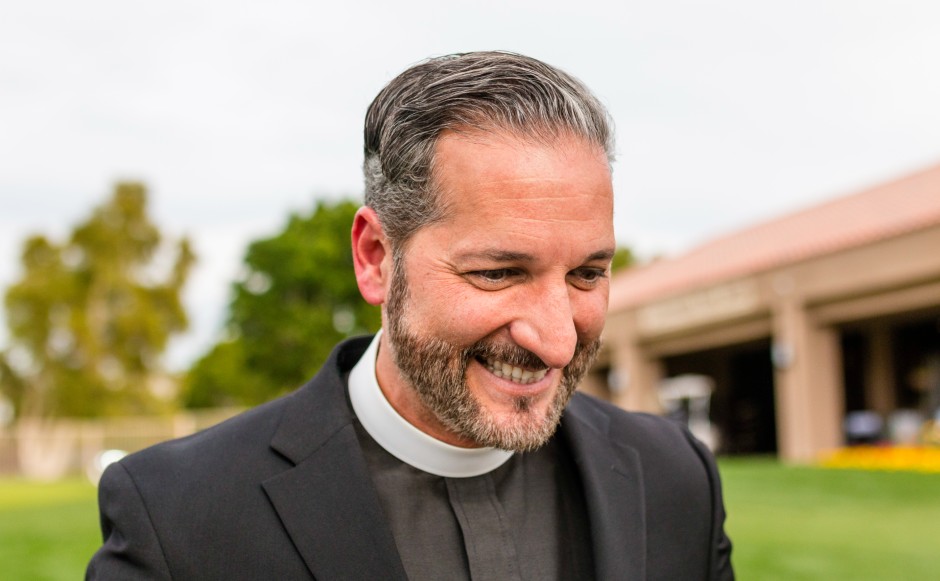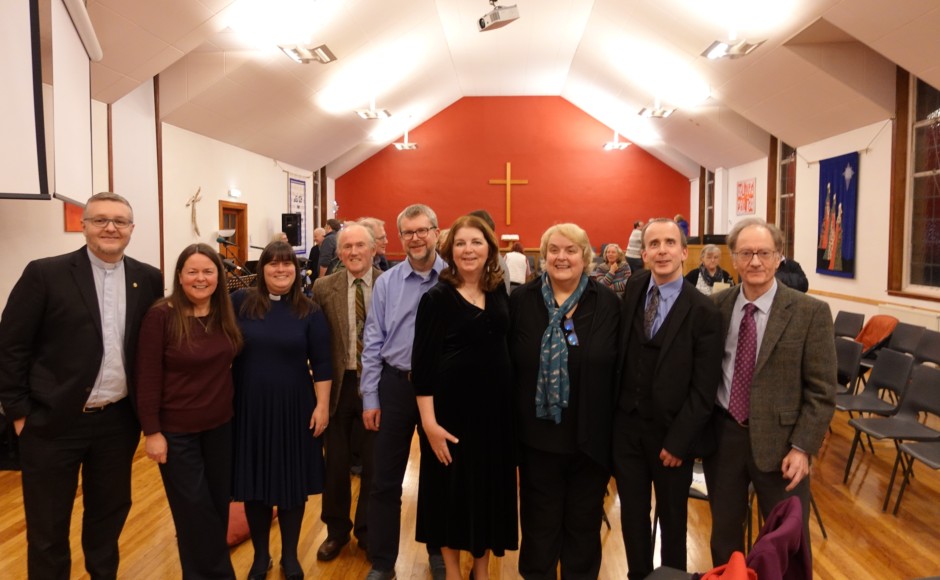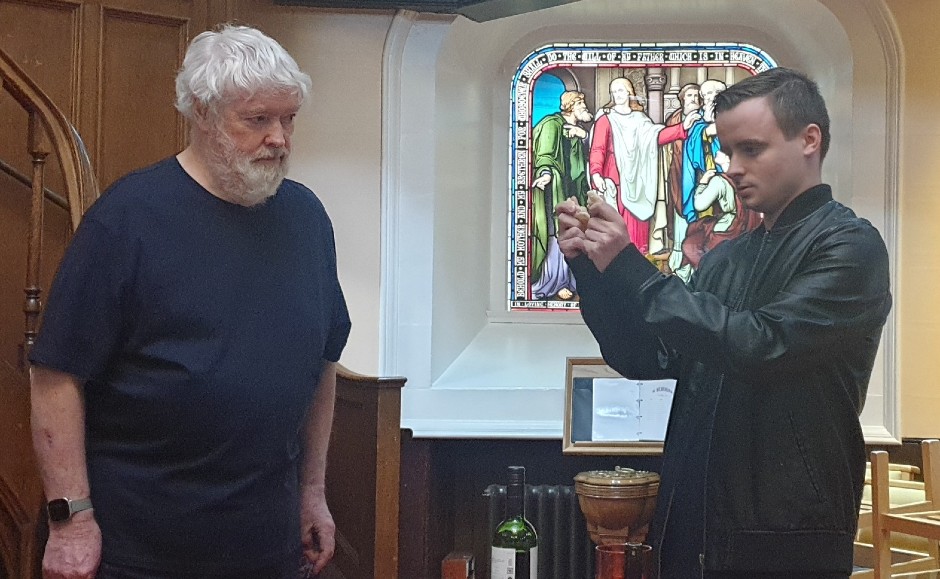Californian clergyman brings a passion for innovation to Scottish Church workshops
Published on 25 February 2022
A California based clergyman with a passion for supporting innovation within churches will visit Scotland in March to run workshops focusing on how congregations can thrive.

Rev Lorenzo Lebrija, a priest within the Episcopal Church in the US, is the director of TryTank, an organisation that works with congregations to help them to develop new ideas.
Speaking about the need to innovate, he said: "The dynamic is changing - people aren't coming back to church as much and the things we're trying aren't necessarily working the way they're used to.
"The idea was we wouldn't spend a lot of time writing a deep theological discussion of every single idea for something and wait for it to be finally approved - we'd go out and try it.
"It's about figuring out the minimal possible effort to see if there's something in an idea.
Go out and try things
Lorenzo said that his "greatest hope" is for those attending the workshops to "go out and try things".
"Imagine you travel somewhere and you're lost.
"Now imagine it's you and your best friend - you're just as lost but it doesn't feel as scary.
"It will always feel better with a community around you - which is why we are Church.
"We believe in community, in supporting one another."
Two workshops will be offered through a partnership between the Church of Scotland and the Scottish Episcopal Church on Saturday 19 March.
The goal is to bring together key changemakers from across both churches to learn from the TryTank initiative and imagine what that might look like in Scotland.
A three-step framework
He teaches a three-step framework which starts with research, then focuses on ideas of what might work and finally encourages people to think about the simplest way a project can be effectively tested.
"I hope people will come to the workshop with actual ideas and we'll work them through the framework and see how it works," he says.
Whilst acknowledging the challenges faced by all Christian denominations, Lorenzo is upbeat about the huge potential amongst church members.
"What's been most surprising is how much good work there is going on out there that is innovative but that most people have been doing it on their own and we need to tell others about it," he said.
One current project involves looking at the 1,730 congregations within the Episcopal Church of the US which have fewer than 29 people on a Sunday.
"We created the 1730 project which is saying 'you're not done - how can we help you to be thriving?'.
"Is it about having more than one service on a Sunday?
"Are there resources that we can help you with so that if someone walked into your church they would see the Holy Spirit alive and present there?"
Reaching younger generations
He is particularly keen for churches to look at ways of reaching out to younger generations.
"The best evangelism I can do is when I turn to my family - my nieces and nephews for example.
"Only one of the six of them has a close church relationship but I know that they're spiritual and have deep conversations about faith.
"How can we do research looking at how they're meeting their spiritual needs right now?
"All religion is to help us as humans to make spiritual meaning of our lives and our world.
"As Christians we find meaning through the resurrection of Jesus.
"My theory is they're finding it somewhere and we need to think about how can the church be there?
"Rather than expecting them to come to us, we need to ask 'can we walk side by side with you there?'"
Challenging the status quo
Despite his enthusiasm for innovation, he acknowledges that tradition is also important.
"The question is how do we preserve this but also, in new and innovative ways, bring other people to it?
"There's a lot bias within church towards the status quo - if it's worked so well for hundreds of years why do we want to tinker with it?
"We need to think about how we can get people to go from one place to another without losing them along the way."
The pandemic has shown that churches can move quickly to respond to people's needs, Lorenzo says.
"When Covid first started there were people dying in hospitals and our priests couldn't get to them to administer the last rites.
"Within seven days we developed a phoneline where people could call and 24 hours a day there would be a clergy person available to help- and you, or a family member or a nurse could phone.
"It didn't cost much and we had hundreds of members of the clergy wanting to volunteer."
Failure as part of innovation
As someone who once experimented with holding Eucharist spin classes, Lorenzo also emphasises that people shouldn't be afraid to try new things and fail.
"By being open and honest about failure, we're showing it's ok and it's a part of innovation.
Scott Shackleton, head of the Faith Action Programme for the Church of Scotland, said: "There are lots of inspiring ideas, projects and people all over the Kirk and we want to support grassroot innovation where ever it happens.
"We also want to encourage a refreshed culture of creativity," he adds.
"It is important that we become comfortable with trying the new, even if the outcomes are not what we thought they would be there is always something to learn.
"We need to have a bit more fun."


